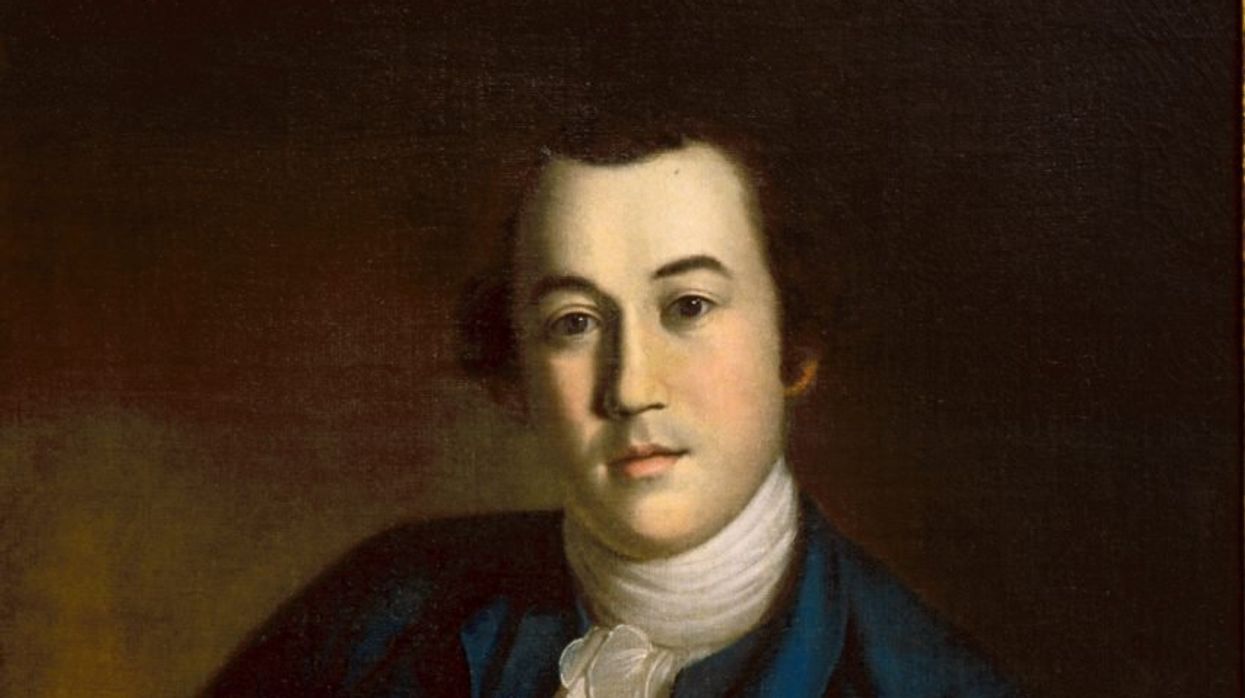Breslin is the Joseph C. Palamountain Jr. Chair of Political Science at Skidmore College and author of “A Constitution for the Living: Imagining How Five Generations of Americans Would Rewrite the Nation’s Fundamental Law.”
This is the latest in a series to assist American citizens on the bumpy road ahead this election year. By highlighting components, principles and stories of the Constitution, Breslin hopes to remind us that the American political experiment remains, in the words of Alexander Hamilton, the “most interesting in the world.”
Calls of “Traitor” and “Turncoat” rang down from the Senate gallery. Henry Tazewell was horrified. A Revolutionary War hero with an impeccable political record, Tazewell was now being accused of treason. And for what? For an eavesdrop, a snoop, a moment of pure hearsay. The problem for this U.S. senator? He lived in a political environment in which “name-calling, partisan bickering, and provocation” ruled the day.
According to official reports, Tazewell, a Democratic-Republican from Virginia, was overheard declaring “that if the French nation should land an army in these states, he would join the said army against the government of the United States.” The senator was deeply frustrated with the current administration. Angry even. He maintained that it was the illiberal actions of President John Adams in executing the Alien and Sedition Acts that prompted his offhand and ill-advised comment. But there was more to the story, and there were more bad actors than just John Adams, Henry Tazewell and Tazewell’s snitch.
Assuming the story is true, this patriot and statesman was publicly proclaiming a preference for the French Directory — the dysfunctional, soon-to-be-overthrown-by-Napolean French government — over a United States led by the opposition party (the Federalists). That’s how bad partisan politics had become at the end of the 18th century. Members of Thomas Jefferson’s Democratic-Republican Party were willing to risk their honor rather than live under a Federalist regime led by Adams and Alexander Hamilton. And the Federalists were no saints either. Adams’ allies were equally prepared to accuse Democratic-Republicans of treason for such simple sardonic and lighthearted remarks as the one Tazewell was overheard uttering. Things were ugly. A more hyper-partisan, deeply divided America rarely has been felt.
Until now.
Are we facing similar hyper-partisanship today? To be sure, senators are not brandishing bayonets and shouting, “Vive la France,” as far as I can tell. But speaking in alarmingly extreme tones — like Tazewell and his Federalist opponents in 1797 — is now commonplace. One recent study found that hyper-partisan rhetoric is materially rewarded in today’s polarized political climate. Public officials who engage in “name-calling, partisan bickering, and provocation” are far more likely to win and retain seats. News media outlets are far more likely to cover the extreme rhetoric.
Equally disturbing is the spell the two major political parties have over us. Partisan identification is now the single most influential variable in determining one’s personal values. Think about that. Party affiliation has now surpassed age, race, education, socioeconomic status, sexual orientation, religion, upbringing and all other factors in shaping one’s world view. Your moral position? Depends on your party affiliation. Your sense of right and wrong? Depends on your party affiliation. Your tolerance for others? Depends on your party affiliation. It seems party platform is the modern equivalent of the pre-Enlightenment religious orthodoxy. The Democratic and Republican national committees have replaced the church as the fount of unquestioned authority. René Descartes’ famous pronouncement “I think, therefore I am” has been replaced by “I don’t think all that much for myself, I just follow the dictates of my political party.”
We are in the Age of Partisanship, not the Age of Reason. Do we need a contemporary Martin Luther to pin 95 theses to the doors of the DNC and RNC? Perhaps. But until another Luther, or Descartes, or John Locke arrives on the scene, consider the seven ideas proposed by the Carnegie Endowment for International Peace or the five suggested by the editorial board of USA Today or the five offered by the smart folks at the Greater Good Science Center at the University of California, Berkeley. All are interesting and, together, may shepherd a new post-partisan Enlightenment. We can only hope.
Which brings us back to Tazewell. He would escape prosecution for his treasonous comment, but not without devastating personal sacrifice. His health began to deteriorate and by the fall of 1798 he was so feeble that he could barely complete the journey from Virginia to the nation’s capital in Philadelphia. In his final correspondence to Jefferson, on Dec. 7, 1798, Tazewell continued to denounce his accusers. “[T]here is every reason to believe,” he complained bitterly, “that the [Federalist] party are using their utmost exertions to displace me.” The party of John Adams was still plotting to cancel him, to bury him, Tazewell intoned. His sad death seven weeks later made the whole Federalist Party scheme tragically moot.




















Trump & Hegseth gave Mark Kelly a huge 2028 gift